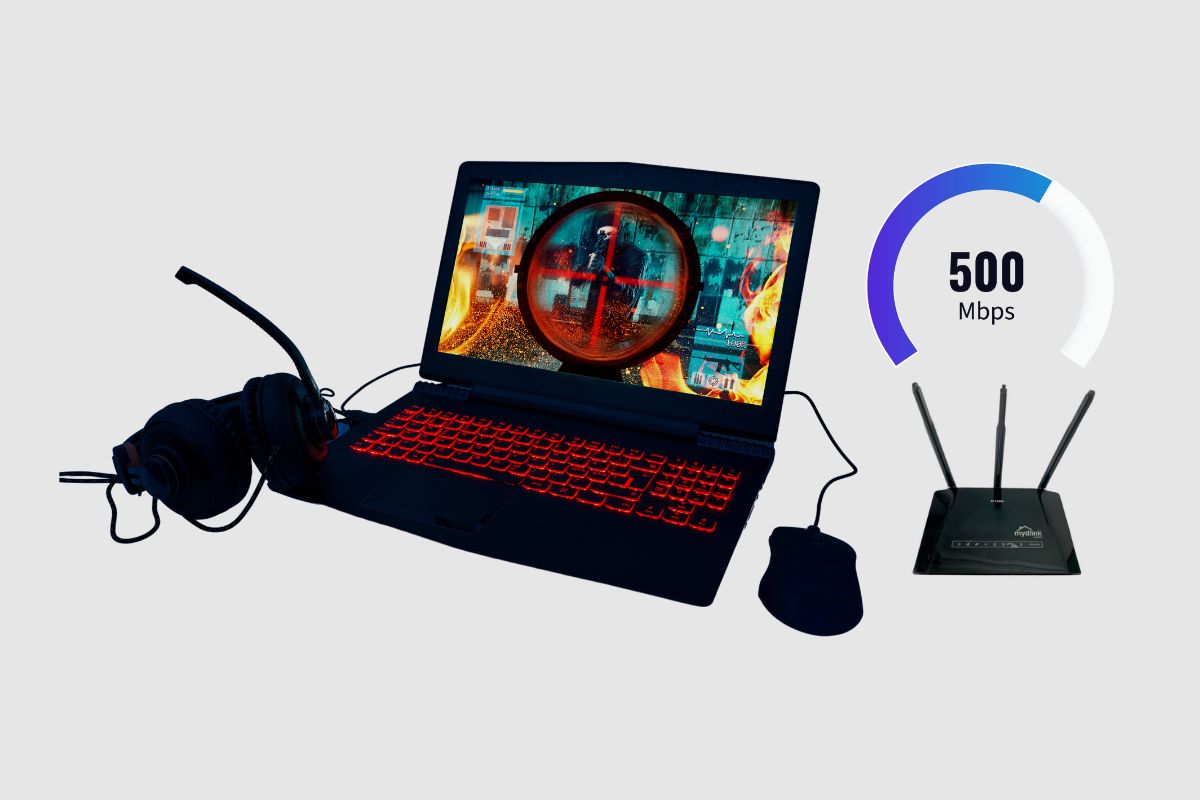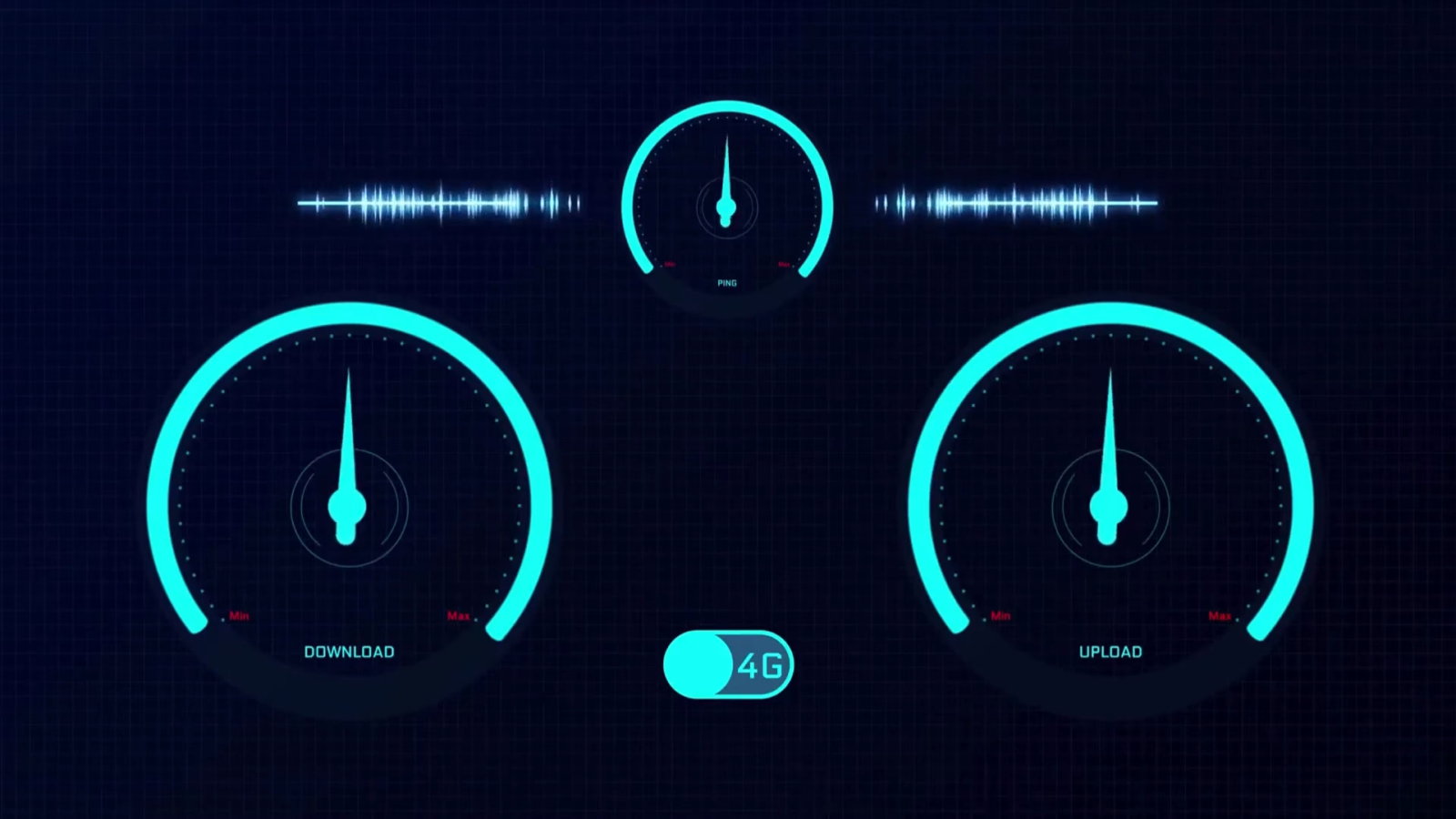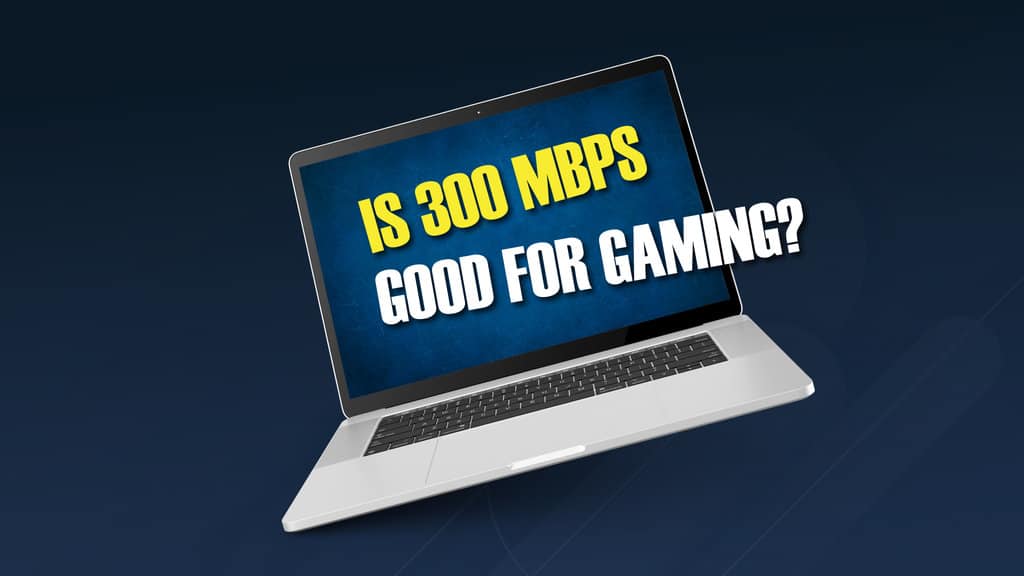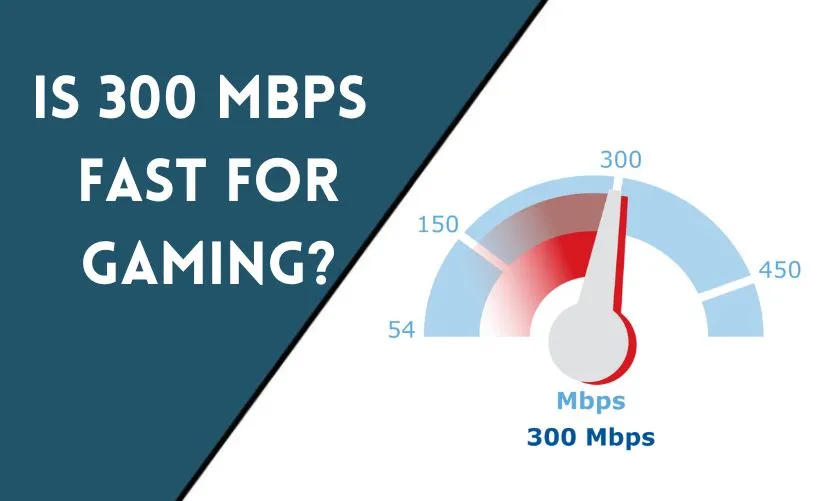Stunning Info About Is 500 Mbps Fast For Gaming

Is 500 Mbps Fast for Gaming? Let's Get Real
1. What 500 Mbps Really Means
So, you're wondering about 500 Mbps and gaming, huh? Well, let's break it down without the tech jargon. Mbps stands for Megabits per second, and it's basically a measure of your internet speed. Think of it like a highway for data. The higher the Mbps, the more lanes there are on the highway, and the faster data can travel to and from your gaming rig. In simpler terms, the faster your internet, the quicker you can download games, stream content, and, most importantly, avoid lag while playing your favorite online titles. Nobody wants to be that person lagging out during a crucial raid, right?
Now, 500 Mbps sounds impressive, and honestly, it kind of is. It's not the absolute top-tier speed available, but it's definitely in the upper echelons of home internet plans. It's like having a pretty sweet sports car; it's not a Formula 1 racer, but it'll get you where you need to go, and do it quickly. For most households, 500 Mbps is more than enough for everyday activities like browsing, streaming movies, and video conferencing. But what about the demands of modern gaming? That's what we are really here to find out!
Consider this: a 500 Mbps connection allows you to download a sizable game relatively quickly. We're talking potentially finishing that massive Call of Duty update while you grab a snack and hydrate — a far cry from the days of overnight downloads. Streaming gameplay on Twitch or YouTube? It's definitely doable, and with the right settings, you can achieve a decent quality stream without sacrificing your in-game performance. The ability to have multiple devices connected at the same time without significantly impacting your gaming experience is another awesome upside. Imagine your spouse streaming a movie while youre dominating on the battlefield with no noticeable lag. Pretty cool, right?
Ultimately, understanding what 500 Mbps provides as a baseline is critical for the further discussion on how well it performs for gaming. Without it, it is difficult to see how this speed would hold up. We will be looking further into gaming specifically to see how the speed is on the field of battle, so to speak.

Gaming Specifics
2. The Dreaded Lag
The big question: will 500 Mbps banish lag from your gaming experience forever? Well, not necessarily. While bandwidth (the speed) is important, another crucial factor comes into play: latency, also known as ping. Latency is the time it takes for data to travel from your computer to the game server and back. Think of it as the round-trip travel time. Even with a blazing-fast 500 Mbps connection, high latency can still cause lag. This is because even though the data is traveling quickly, the journey itself might be long. Things like distance to the server, network congestion, and even the server's own performance can influence latency.
So, how do you minimize latency? Firstly, choose game servers that are geographically close to you. Playing on a server in Europe while you're in North America? Expect higher ping. Secondly, ensure that your home network is optimized. Wired connections (Ethernet) are almost always better than Wi-Fi for gaming, as they provide a more stable and consistent connection. If you must use Wi-Fi, try to position your router closer to your gaming setup, and consider upgrading to a newer router with better technology.
Thirdly, check if other devices on your network are hogging bandwidth. Streaming multiple 4K videos or downloading large files simultaneously can impact your ping. Consider prioritizing your gaming traffic using a feature called Quality of Service (QoS) in your router settings. This allows you to prioritize your gaming traffic, ensuring that it gets the bandwidth it needs. Lastly, remember to restart your modem and router periodically. This can sometimes resolve minor connectivity issues that might be contributing to lag spikes. It's like giving your internet a little reboot to keep things running smoothly.
Now, even with 500 Mbps, there are still going to be those times when you might experience lag. You just have to do what you can to keep everything running as smoothly as possible to ensure that you don't suffer from too much disruption of the gameplay. It is going to happen every now and then, but keeping on top of it is the best that you can do.

Factors Beyond Speed
3. Fine-Tuning for Peak Performance
Believe it or not, your internet speed is just one piece of the puzzle when it comes to a smooth gaming experience. Your hardware also plays a crucial role. A powerful gaming PC or console is essential for running modern games at high settings without stuttering or frame rate drops. Make sure your graphics card, processor, and RAM meet the game's recommended specifications. If your hardware is struggling, even the fastest internet connection won't magically improve your performance.
Software optimization is equally important. Keep your graphics drivers updated to the latest version, as these often include performance improvements and bug fixes. Close any unnecessary background applications that might be consuming system resources. These could be programs you forgot you even opened, eating up precious processing power. Defragment your hard drive regularly to ensure that game files are accessed efficiently. This can significantly reduce loading times and improve overall game performance.
Network configuration also deserves attention. Make sure your router's firmware is up-to-date. A new firmware version can sometimes help resolve network connectivity issues and optimize performance. Check your router settings to ensure that it's configured for optimal gaming performance. Look for options like "Gaming Mode" or "Traffic Prioritization," which can automatically prioritize gaming traffic over other network activities. Experiment with different router settings to find the optimal configuration for your specific setup.
Consider using a gaming VPN (Virtual Private Network). While a VPN might seem counterintuitive, as it adds an extra layer of encryption and processing, it can sometimes improve your ping and reduce lag by routing your traffic through a more direct path to the game server. However, be sure to choose a reputable gaming VPN with low latency, as a poorly configured VPN can actually worsen your gaming experience. It's all about finding the right balance and tweaking your setup to achieve peak performance.

Real-World Scenarios
4. Balancing Bandwidth and Game Choice
Let's get down to some real-world examples. You live in a household with multiple users, all vying for internet bandwidth. Your partner is streaming Netflix in 4K, your kids are watching YouTube videos, and you're trying to play an online game. Can 500 Mbps handle it all? In most cases, yes, but it depends on the specific demands of each activity. Streaming 4K video requires a significant amount of bandwidth (around 25 Mbps), while YouTube videos vary depending on the resolution. Online gaming typically requires a relatively small amount of bandwidth (around 5-10 Mbps), but latency is much more critical. 500 Mbps is usually sufficient to handle these scenarios simultaneously, but you might experience some congestion if everyone is pushing the limits. This is where QoS settings can come in handy, prioritizing gaming traffic to ensure that you get the best possible experience.
The type of game you're playing also matters. Fast-paced, competitive games like first-person shooters (e.g., Counter-Strike: Global Offensive, Valorant) and MOBAs (e.g., League of Legends, Dota 2) are highly sensitive to latency. Even a small amount of lag can significantly impact your performance. These games require a stable, low-latency connection to ensure that your actions are registered accurately and in real-time. Games with less demanding requirements, like strategy games (e.g., Civilization, StarCraft) or single-player RPGs, are less sensitive to latency. You might still notice some lag with a poor connection, but it won't be as detrimental to your overall experience.
Consider your internet usage patterns. If you frequently download large game files or stream high-resolution content, you might want to consider upgrading to a faster internet plan. However, if you primarily use the internet for browsing, email, and occasional gaming, 500 Mbps might be more than sufficient. It's all about finding the right balance between speed, cost, and your specific needs. Dont just get the highest speed because you think you need it.
Ultimately, it boils down to experimentation. Monitor your network performance while gaming and see how it performs under different conditions. Use online speed tests to check your actual download and upload speeds, as well as your ping. This data can help you identify any bottlenecks and optimize your setup for the best possible gaming experience. And remember, sometimes a little bit of troubleshooting can go a long way in improving your online gaming performance. Don't be afraid to dig into your router settings or contact your internet service provider for assistance.

Is 500 Mbps the Perfect Gaming Speed? Our Verdict
5. The Sweet Spot for Most Gamers
So, is 500 Mbps the holy grail of gaming internet speeds? Well, not quite. There's no one-size-fits-all answer, as the ideal speed depends on your specific needs and usage patterns. However, for most gamers, 500 Mbps strikes a good balance between speed, cost, and performance. It's fast enough to handle most modern games without significant lag, and it provides ample bandwidth for other online activities. If you're a serious gamer who streams frequently or lives in a household with multiple heavy internet users, you might want to consider upgrading to a faster plan. But for the average gamer, 500 Mbps is a solid choice.
Think of it like this: 500 Mbps is like a well-rounded athlete. It's not the absolute best at any one thing, but it's good at everything. It can handle fast-paced gaming, streaming high-resolution content, and downloading large files without breaking a sweat. It's a versatile and reliable option that will meet the needs of most gamers. Of course, there are always exceptions. If you're a professional gamer competing at the highest level, or if you simply demand the absolute best possible performance, you might want to invest in a gigabit (1000 Mbps) connection. But for most of us, 500 Mbps is more than enough.
Remember that latency is equally as important to bandwidth. No matter how fast your download and upload speeds are, you need to be sure that the latency stays low. A few things that can help are using an ethernet cable, playing on the appropriate server, and prioritizing network traffic. If all of those are in order, a 500 Mbps connection should be smooth and you should be able to play without worry.
Ultimately, the best way to determine if 500 Mbps is right for you is to try it out. Most internet service providers offer a range of plans, so you can experiment with different speeds and see what works best for your needs. Monitor your network performance while gaming and adjust your plan accordingly. And remember, there's no shame in downgrading to a slower plan if you find that you're not using all of the bandwidth you're paying for. It's all about finding the sweet spot that provides the best value and performance for your gaming needs.
